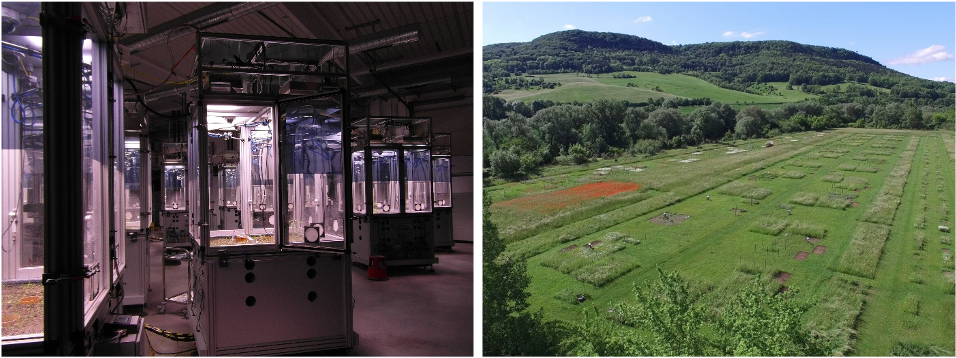PhD project offered by the IMPRS-gBGC in Jan 2025
Buffering extreme events on the plant-soil interaction by diversity |
|
Gerd Gleixner,
Markus Lange,
Valerie Schwab,
Erika Kothe
|
Project descriptionClimate change increases the occurrence of extreme events, such as droughts or heatwaves. The response of ecosystems to extreme events, in terms of productivity, is well documented. The resilience and resistance of ecosystems to extreme events depends on the plant-soil interactions as well as on the diversity of the ecosystem. Specifically, carbon-nutrient trading between plants providing carbon (energy) to soil microorganisms that return nutrients for plant growth is the basis for ecosystem resilience. On the other hand, plant diversity impacts the soil strength of the plant-soil interactions.This project will investigate the plant diversity-mediated resilience of grasslands studying the resistance and recovery of plant-derived carbon allocation to the soil and the soil microbial community under climate extremes. For this the we will assess how plant diversity affects plant carbon allocation (quantity and quality) and microbial uptake of plant carbon during and after hot drought events. The PhD candidate will trace plant carbon allocation to the soil and its uptake by the microbial community by applying a 13CO2 pulse label under drought conditions and during rewetting. The soil microbial community and its carbon uptake will be investigated using the chloroform fumigation extraction (CFE) and the plant exudates by analysing extractable organic carbon (EOC). In addition, both extracts will be analysed using ultrahigh-resolution mass spectrometry and individual molecules that hold the isotopic enrichment will be identified. This will allow the assessment of compounds associated with plant exudates and microbial metabolism under drought and after rewetting. Working groupMolecular Biogeochemistry at the Max Planck Institute for BiogeochemistryRequirementsApplications to the IMPRS-gBGC are open to highly motivated and qualified students from all countries. For this particular PhD project we seek a candidate with
 Left picture: Eco-units in the iDiv Ecotron. Right picture: Aerial photographic of the Jena Experiment field site. |